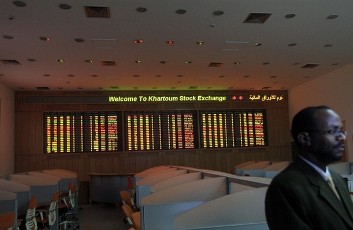Sudan to work with World Bank on assessing economic performance
May 22, 2012 (KHARTOUM) – The Sudanese government will work closely with the World Bank in the coming period to evaluate the performance of the economy and come up with proposals that will help it weather the challenges it is facing, an official at the finance ministry said today.

Ibrahim said that this forum, which is the first of its kind, aims at drawing policies using the technical expertise of the World Bank that would help reduce inflation, trade deficit and budget deficit.
He said that these meetings could be held every three months and can be expanded to include other economic sector ministries including agriculture, livestock and industry with the participation of employer unions.
Participants in today’s forum included representatives from the central bank and statistical bureau.
The World Bank’s economist Paolo Zacchia reviewed at the forum a study of Sudan’s economy after the South’s secession, produced in collaboration with the finance ministry, which looked into items such as current account, Forex reserves, inflation and the recovery programme that aims to boost exports and replace imports.
The briefing noted the policies undertaken by the government to combat poverty as it is one of the prerequisites for debt relief Sudan is seeking. It also discussed the performance of the 2012 budget in light of internal and external challenges.
South Sudan inherited 75% of Sudan’s known oil reserves when it gained independence from the north last July. But the pipelines are in Sudan and the two have been unable to agree on how much the South should pay to transport its oil. The latter accounted for 90% of Sudan’s exports and was the main source of income and hard currency.
The Juba government suspended their entire oil production this year after Khartoum started seizing part of their oil exported to make up for what they call unpaid fees.
Sudanese finance minister Ali Mahmood Abdel-Rasool said this month that the dispute cost the country $2.4 billion in 2012.
To make matters worse, the fighting between Khartoum and Juba last month in the Heglig caused damage to Sudan’s main oilfields and it could take many more months before production is back at full capacity.
Until then Sudan has been forced to deal with the fallout of South Sudan’s secession in the form of rising inflation and deteriorating value of the pound.
Abdel-Rasool has been working to convince lawmakers that the government needs to gradually lift fuel subsidies saying it is a huge burden on the budget. However, his pleas are met with stiff resistance from the parliament which contends that this will make life even more difficult than it is for ordinary citizens.
(ST)
